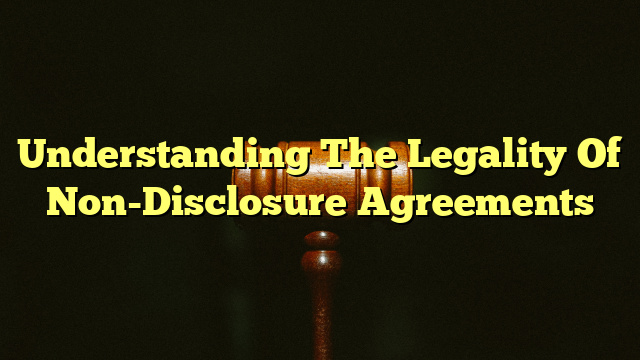A non-disclosure agreement (NDA) is a legal contract between two or more parties that sets out what information is to be kept confidential and how it will be treated. NDAs are used to protect confidential and/or proprietary information, such as trade secrets, from being disclosed to third parties without the consent of the discloser. According to the United States Department of Justice, NDAs “promote open communication between parties without fear of misuse of information.”
How Legally Binding Is a Non-Disclosure Agreement?
Non-disclosure agreements are legally binding contracts that must be adhered to. The U.S. Department of Justice states that NDAs can be enforced in court if the terms of the agreement are violated. An NDA can be used to protect both financial and personal information, as well as trade secrets. If a party breaches the terms of the agreement, they can be held liable for damages.
What Makes an NDA Unenforceable?
An NDA can be deemed unenforceable if it is too broad or unclear. In order for an NDA to be legally binding, the parties involved must understand and agree to all of the terms contained within the agreement. If a party’s rights or obligations are not clearly specified in the agreement, it may be considered unenforceable. Additionally, NDAs must be in compliance with state and federal laws. If a party violates these laws, the NDA will not be considered legally binding.
What Are the 5 Key Elements of a Non-Disclosure Agreement?
1. Parties: The NDA must identify the parties involved in the agreement.
2. Purpose: The agreement must state the purpose for which the confidential information is shared.
3. Limitations: The agreement should clearly define the limitations on the use of the confidential information.
4. Liability: The agreement should specify the liabilities of the parties if the agreement is breached.
5. Termination: The agreement should specify how and when it can be terminated.
Are Nondisclosure Agreements Illegal?
No, non-disclosure agreements are not illegal. As long as the agreement is fair and reasonable and complies with state and federal laws, it is considered a legally binding contract. It is important to note, however, that an NDA can become illegal if the terms of the agreement are not followed or the agreement is used to hide illegal activities.


An essential tool to protect confidential information. Think before signing!